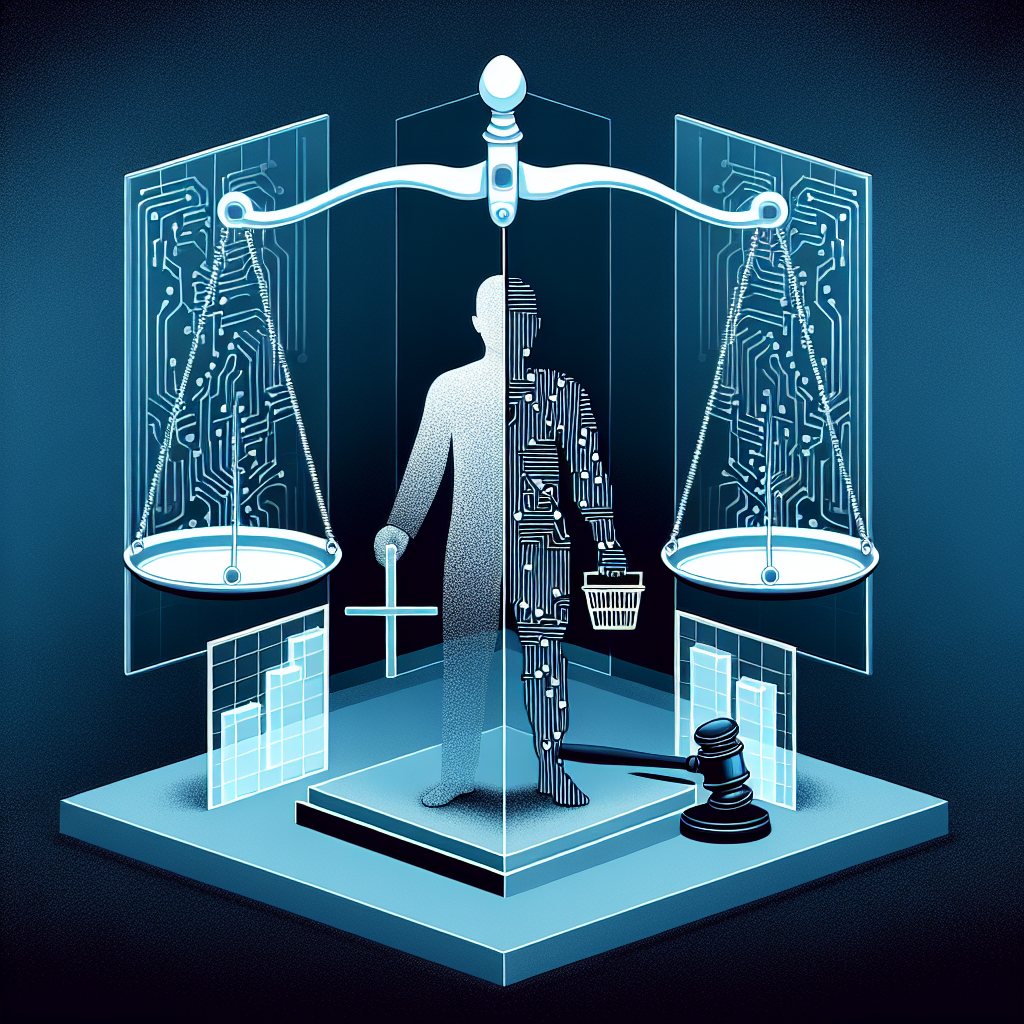Artificial intelligence (AI) has become increasingly prevalent in various industries, including the legal sector. While the use of AI in the legal field has the potential to enhance efficiency and accuracy, it also raises important ethical considerations, particularly regarding bias and transparency. In this article, we will explore the implications of AI in legal ethics, specifically focusing on how bias and transparency issues can be addressed.
**Bias in AI**
One of the primary concerns surrounding the use of AI in the legal field is the potential for bias to be embedded in the algorithms. Bias can manifest in various forms, such as racial, gender, or socioeconomic bias, and can have significant implications for the fairness and accuracy of legal outcomes.
There are several reasons why bias may be present in AI systems. One key factor is the data used to train the algorithms. If the training data is not diverse or representative of the population, the AI system may learn and perpetuate biased patterns. For example, if historical data used to train a predictive policing algorithm reflects discriminatory practices, the algorithm may perpetuate those biases in its decision-making.
Another factor that can contribute to bias in AI systems is the design of the algorithms themselves. Complex algorithms can be difficult to interpret and may contain hidden biases that are not immediately apparent. This lack of transparency can make it challenging to identify and address bias in AI systems.
**Addressing Bias in AI**
To address bias in AI systems used in the legal field, several strategies can be employed. One approach is to ensure that the training data used to develop the algorithms is diverse and representative of the population. This can help mitigate the risk of bias being embedded in the algorithms from the outset.
Transparency is also key to addressing bias in AI systems. By making the algorithms and decision-making processes transparent, stakeholders can better understand how decisions are being made and identify any potential biases. This transparency can also help build trust in AI systems and ensure accountability for their outcomes.
In addition to data diversity and transparency, ongoing monitoring and evaluation of AI systems are essential to detecting and addressing bias. By regularly assessing the performance of AI systems and conducting bias audits, organizations can identify and correct any biases that may arise over time.
**Transparency in AI**
Transparency is a fundamental principle of ethical AI in the legal field. Transparency refers to the ability to understand and explain how AI systems make decisions and the factors that influence those decisions. Transparent AI systems are essential for ensuring accountability, building trust, and identifying and addressing bias.
One way to promote transparency in AI systems is to provide explanations for the decisions they make. This can help stakeholders understand why a particular decision was reached and assess the fairness and accuracy of the decision-making process. Explanations can also help identify any biases that may be present in the algorithms.
Another strategy for promoting transparency in AI systems is to use interpretable algorithms that are easier to understand and interpret. Complex algorithms can be difficult to explain and may contain hidden biases that are not immediately apparent. By using interpretable algorithms, stakeholders can better understand how decisions are being made and identify any potential biases.
**Frequently Asked Questions**
**Q: How can bias be mitigated in AI systems used in the legal field?**
A: Bias can be mitigated in AI systems by ensuring that the training data is diverse and representative of the population, promoting transparency in the algorithms and decision-making processes, and conducting regular monitoring and evaluation of AI systems to detect and address bias.
**Q: Why is transparency important in AI systems in the legal field?**
A: Transparency is important in AI systems in the legal field because it helps stakeholders understand how decisions are made, promotes accountability, identifies and addresses bias, and builds trust in the technology.
**Q: What are some strategies for promoting transparency in AI systems?**
A: Strategies for promoting transparency in AI systems include providing explanations for the decisions made by the algorithms, using interpretable algorithms that are easier to understand, and conducting regular audits to assess the performance and identify any biases in the systems.
In conclusion, AI has the potential to transform the legal field by enhancing efficiency and accuracy. However, it is crucial to address ethical considerations, such as bias and transparency, to ensure that AI systems are fair and equitable. By promoting diversity in training data, transparency in algorithms, and ongoing monitoring and evaluation, organizations can mitigate bias and promote ethical AI in the legal sector.

